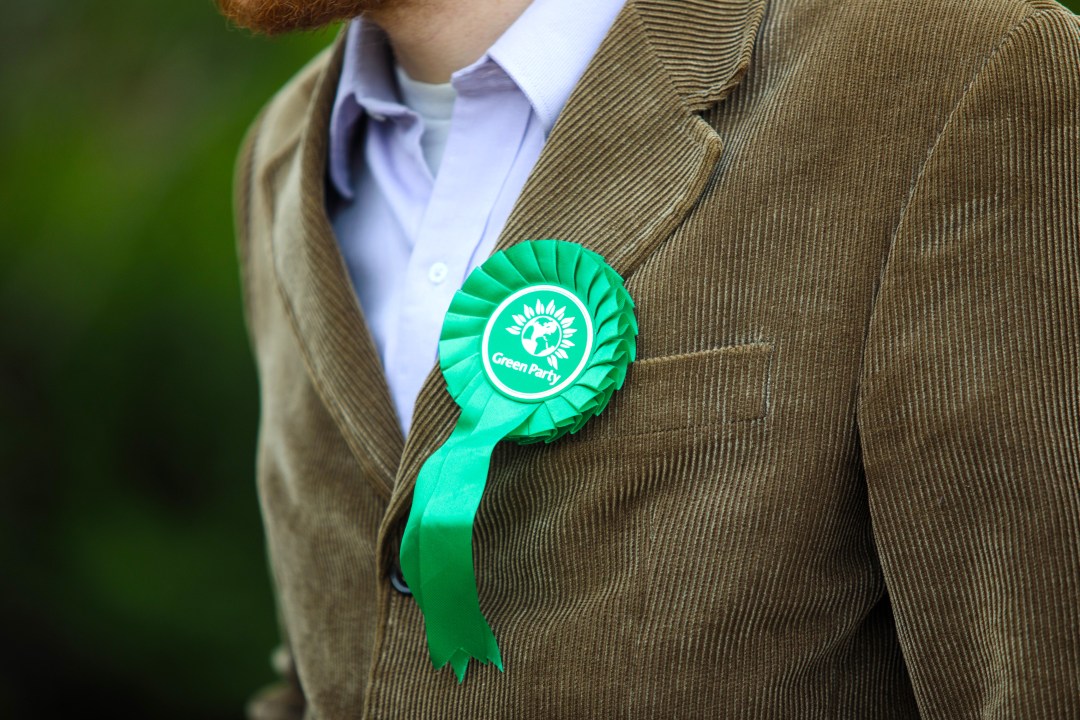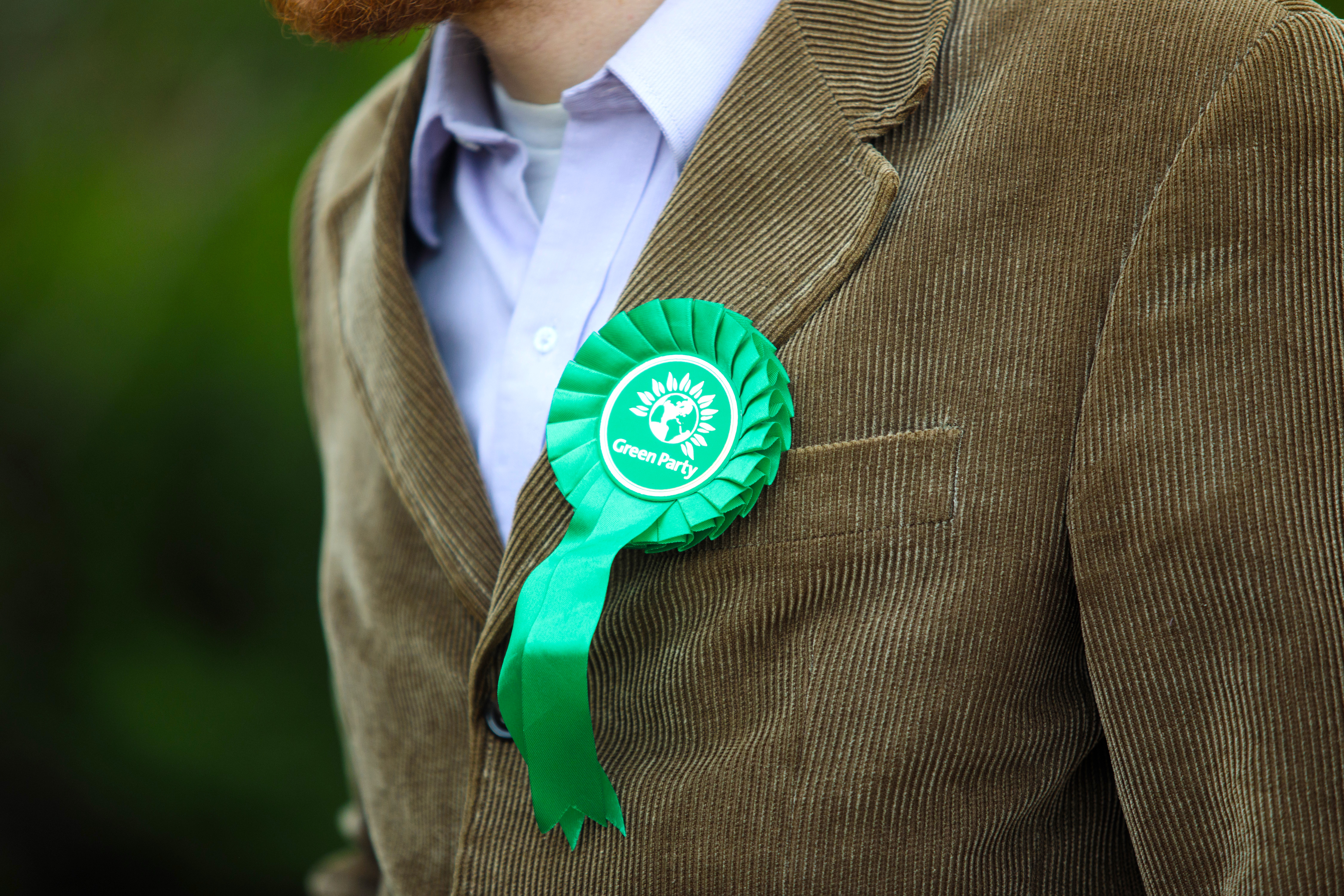The British left is moribund. The Labour party’s ratings are sliding under Sir Keir Starmer, aka ‘Captain Hindsight’, as he struggles to project anything compelling to the electorate.
The Liberal Democrats are doing even worse, with poll ratings often down at 5 or 6 per cent. They have given up on liberty — they don’t think free speech is a priority and have failed to query any significant aspect of lockdowns — and on democracy too, via their fanatical effort to set aside the result of the EU referendum.
Sir Ed Davey’s major tactic seems to be to copy Sir Keir in being generally non-committal and to shadow his every move; a higher form of fence-sitting given the lack of such moves.
There is however one exception: the Green party must think it is doing OK. And in relative terms, it is, occasionally nudging into third place. A weekend YouGov poll measured its support at 7 per cent, compared to 5 for the Lib Dems. A month ago an Ipsos MORI poll scored it an 8.
But in fact, the Greens should be kicking themselves because with each passing day they squander fresh opportunities to be the big story of politics in 2021.
More than any other party they are identified with the big idea of our time — being kinder to the planet
More than any other party they are identified with the big idea of our time — being kinder to the planet. Concern for the environment is growing in both political and cultural salience. Even the tabloid press — which once mocked the battle to combat climate change — has changed its tune, with the Mail, Express and Sun all now running environmental campaigns.
Their brand name and political heritage means the Greens are the natural owners of environmentalism every bit as much as Ukip under Nigel Farage came to own hard Euroscepticism or the SNP owns Scottish separatism. Unlike Labour or the Lib Dems, the Greens have not recently done anything so disastrous that it is etched on the eyeballs of the public either. And yet and yet.
Seldom have I seen a party so apparently determined to miss a series of open goals. It is not that they are failing to deliver strong messages on the climate change front. Indeed, were Boris Johnson to commit Britain to delivering net-zero carbon emissions by next Friday then Caroline Lucas, the party’s sole MP, would no doubt pop up to argue that the failure to achieve it by next Thursday was a disgrace.
In fact, Green party representatives, many of whom work in academia, love talking about the high politics of solving global environmental problems. A trawl through the party’s Twitter feed demonstrates this, with items galore pushing for new carbon taxes or the need for a radical agenda at the COP26 climate summit later this year. That’s all fine. Saving the planet is what the party must be about.
But the problem lies with the supporting policy offering, currently a conveyor belt of militant identity politics leftism of a kind that risks alienating floating voters. The alphabet soup acronym LGBTIQA+ figures large. Apparently an urgent political issue is that ‘we cannot let the LGBTQ+ of the GPEW down’. Anyone?
The leader of the Green party in Wales has tweeted a graphic declaring ‘Trans Men Are Men — Trans Women Are Women’. It’s a point of view, but the idea of people with penises being allowed in the ladies loos isn’t going to be a net vote-winner anytime soon.
What there isn’t very much of at all is nature. You know, actual wholesome green stuff — fields and hedgerows, village greens, city farms, hedgehogs, birdlife, shots of anyone picking up litter from a riverbank.
When Paddy Ashdown hauled the Lib Dems off their backsides in the late 1980s, it was by spreading a creed of local ‘pavement politics’ across his party. By becoming known in communities across the land as the people who cared for the locality, he turned the party into a natural receptacle for protest votes at a national level.
The Greens have a far bigger opportunity now than he did then. Because caring for the local natural environment strikes such a chord. Instead of telling us about the latest fashionable ID politics notions imported from the US left, the Greens ought to be posting on their social media endless photos of ‘green wellie weekends’ in which beaming party members have dredged a local stream that had become silted up, or of Green party nature walks, or rare butterflies spotted in the gardens of members or ‘great Green beach cleans’.
Think Richard Briers in his woolly jumper in The Good Life or national treasure David Attenborough talking softly about the wondrousness of some tiny frog or the love of the natural world conveyed by any of the presenters of BBC’s increasingly popular Spring Watch and Autumn Watch series.
It is not that the Greens lack the photogenic message carriers to do this stuff. Both of their co-leaders — the rather dashing former Tory Jonathan Bartley and the naturally effervescent Sian Berry — project wholesome traits when interviewed.
In an era when public cynicism about the conventional political class parties is at such a high, this stuff is priceless — far more potent than an indigestible new policy about binding commitments on global emissions.
A 7 per cent here, an 8 per cent there — maybe getting an extra member on the London Assembly — whoopee! The Greens could satisfy themselves with such prizes. Or they could see the bigger picture: a floundering Labour party that has lost four general elections in a row and is already heading towards a fifth defeat, a Liberal Democrat party that has turned losing friends and alienating people into an art form and an appetite on the left for something different and exciting.
David Cameron once coined the term ‘vote blue, go green’. For the Greens, the necessary innovation is as obvious as ‘vote Green, go green’. So go and woo those mid-market newspaper readers. Capture the Attenborough vote and they’ve got it made.








Comments